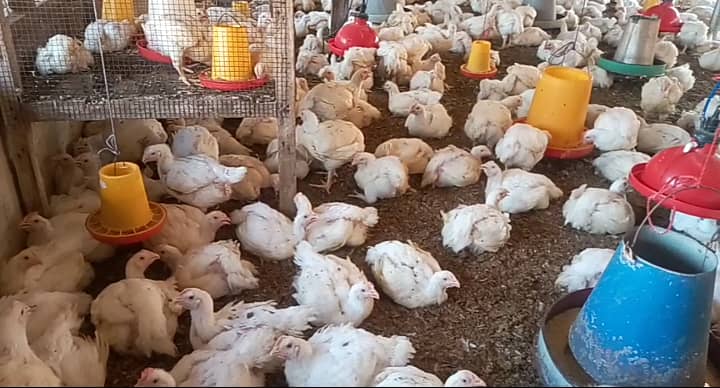The National Poultry Farmers Association has expressed strong support for the newly launched “Feed Ghana” initiative, particularly the component that empowers 50 anchor farmers to lead poultry production in the country. The association views the initiative as a timely intervention that could help revive the struggling poultry sector, which has faced a steady decline over the years.
Speaking in an interview on A1 Radio, the association’s National President, George Dasaah, emphasized that the poultry industry has long battled structural challenges that have hindered growth. He noted that the new initiative presents an opportunity for meaningful change—if implemented effectively. While the policy is promising, he said, the real challenge lies in execution, which has been the downfall of many previous programs.
“When the poultry farmers heard about it, it was welcome news because, over the years, the poultry industry has been on the verge of collapse, and this project is going to help revive it,” he said. “We are hoping that when implementation begins, it will be done and done well because that is always the problem with very good and laudable policies like this one.”
According to him, the association is currently seeking a meeting with the Minister for Food and Agriculture to align its internal implementation plan with the government’s broader strategy. By doing so, the group hopes to ensure that experienced poultry farmers are fully involved in the rollout of the project, rather than being sidelined in favor of individuals with political connections but little technical expertise.
“Over the years, laudable and good policies such as this one have come, but sometimes, when it comes to implementation, they fail simply because, to some extent, the Poultry Farmers Association is not consulted. Before you realize it, we have what we call ‘political farmers’—people who know nothing about poultry farming but, because of political connections, receive the assistance. In the end, it doesn’t work,” he explained.
Mr. Dasaah emphasized the readiness of poultry farmers to contribute to reducing the country’s reliance on imported chicken.
“We are poised and ready to do our part so that we can reduce the importation of poultry into this country,” he said.
He added that successful implementation would not only reduce imports but also position the local poultry sector to scale up and potentially enter export markets. However, he stressed that this would only be possible if all key stakeholders—including farmers, government, and private sector players—work collaboratively and fulfill their respective roles.
“If we start this and it is done well, and all stakeholders play their parts—the government, poultry farmers, and everyone—I can assure you that the next time, we won’t be looking for government assistance. Farmers will be on their feet, able to produce, scale up, and even export,” he stated.
He also outlined specific steps the government should take to ensure the project’s success, including supporting the entire poultry value chain: reducing maize costs, enhancing hatchery operations, expanding processing capacity, and improving storage facilities. Mr. Dasaah pointed out that in areas where anchor farmers are based, efforts should be made to establish processing plants to handle the volume of poultry expected from the initiative.
“Wherever anchor farmers are, steps should be taken to establish a processing plant if one doesn’t exist. Processing plants also come with storage, so if that isn’t addressed, the whole initiative could stall,” he warned.
On the marketing front, he highlighted the importance of creating awareness among Ghanaians about the benefits of consuming locally produced chicken. He believes encouraging the public to buy Ghanaian poultry would not only promote healthier diets but also generate jobs, strengthen the local currency, and foster national economic development.
“If we are importing 95 percent, it means the market is there. But it all boils down to the Ghanaian being conscientized to understand that patronizing locally produced chicken comes with many benefits,” he said.
Mr. Dasaah remains optimistic but firm in his call for genuine stakeholder engagement and transparent implementation. He urged the government to ensure nationwide execution of the policy as promised, so its impact can be felt across the country.
Source: A1Radioonline.com|101.1Mhz|Gifty Eyram Kudiabor|Bolgatanga


